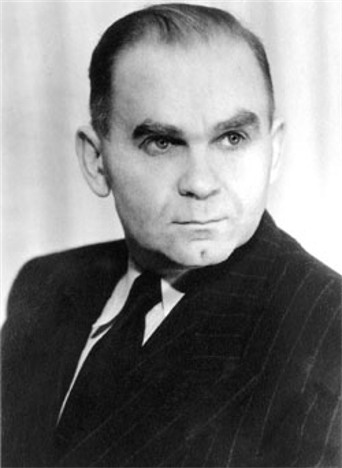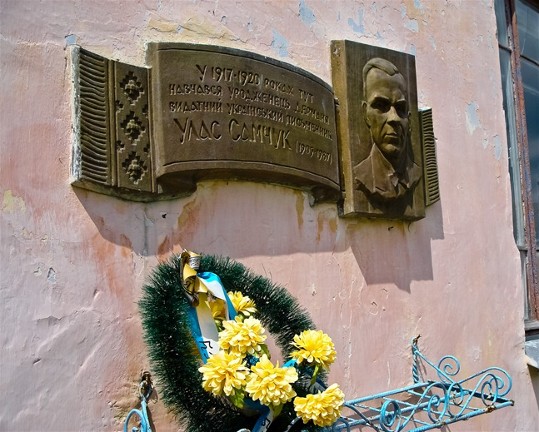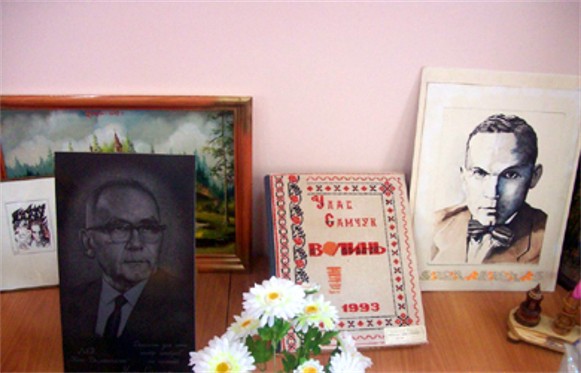Samchuk, Ulas
Samchuk, Ulas [Самчук, Улас; Samčuk], b 20 February 1905 in Derman, Ostroh county, Volhynia gubernia, d 9 July 1987 in Toronto. Writer and journalist. Samchuk was educated at the University of Breslau (now Wrocław, Poland) and at the Ukrainian Free University in Prague (1931). His literary career began in 1926 with short stories published in Dukhovna besida (Warsaw) and Literaturno-naukovyi vistnyk, which were later republished as the collection Vidnaidenyi rai (Rediscovered Paradise, 1936). He was editor of the Rivne newspaper Volyn’ (1941–3), and he fled to Germany in 1944, where he headed the literary-artistic organization MUR (1945–8). He emigrated to Canada in 1948 and became a longtime head of the Canadian affiliate of the Slovo Association of Ukrainian Writers in Exile. Samchuk's prose is deeply rooted in the 19th-century realist tradition. His novels are broad-canvas chronicles of the Ukrainian experience in the 20th century. Themes progress from the difficult national and cultural nascence in the trilogy Volyn’ (Volhynia, 1932, 1935, 1937), the novelette Kulak (1932), and the novel Iunist’ Vasylia Sheremety (The Youth of Vasyl Sheremeta, 1946, 1947) to the national struggle of the Hutsuls in Hory hovoriat’ (The Hills Are Speaking, 1934), the devastating Famine-Genocide of 1932–3 in Mariia (1934), and the Second World War and forced Ukrainian labor (see Ostarbeiter) in the trilogy Ost (East, 1948, 1957, 1982). He captured the struggle of the Ukrainian Insurgent Army in the novel Choho ne hoït’ vohon’ (What Fire Does Not Heal, 1959) and turned his attention to the plight of Ukrainian pioneers and later émigrés in Na tverdii zemli (On Solid Ground, 1967) and Slidamy pioneriv: Epos ukraïns’koï Ameryky (In the Footsteps of the Pioneers: The Saga of Ukrainian America, 1979). What his fiction did not encompass he captured in a series of memoirs: Piat’ po dvanadtsiatii (Five after Twelve, 1954), Na bilomu koni (On a White Horse, 1965), Na koni voronomu (On a Black Horse, 1975), and Planeta Di-Pi (The Planet of the DPS, 1979). An archive and museum devoted to his work was established in Toronto in 1988.
Danylo Husar Struk
[This article originally appeared in the Encyclopedia of Ukraine, vol. 4 (1993).]
.jpg)
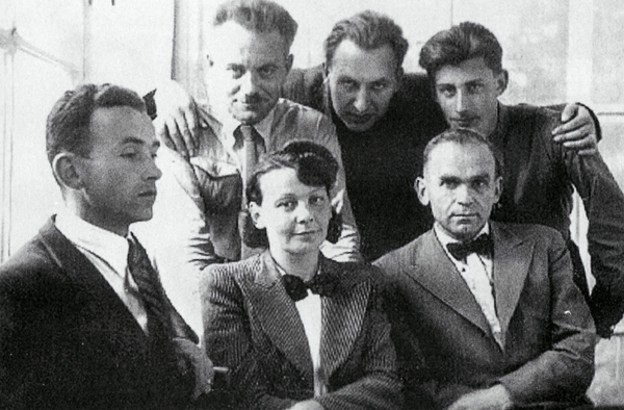
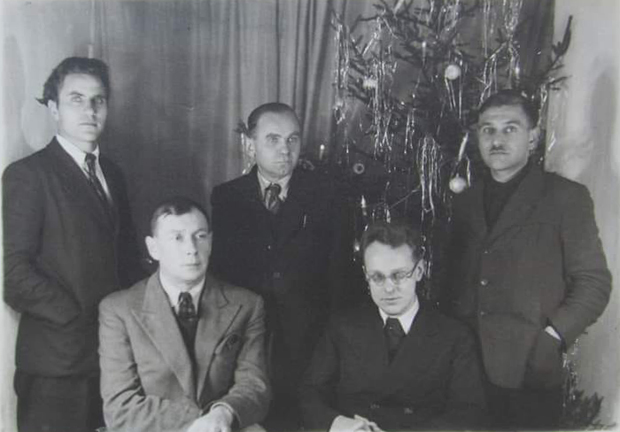
.jpg)
